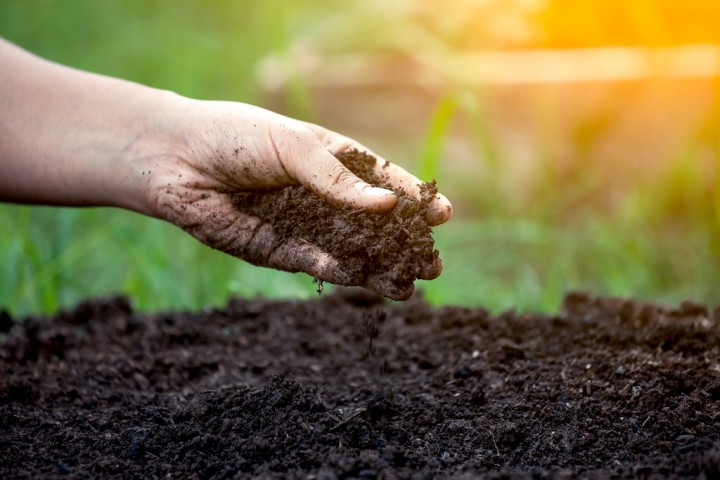Pakistan shares IAEA Soil Salinization Solutions through South-South Cooperation
Following initial IAEA support, NIAB has made important strides in developing and planting salt-tolerant crops and implementing soil management techniques to combat soil salinization.

Pakistan has lost 5.7 million hectares of arable land due to soil salinization. This figure is growing by 40 000 hectares each year, according to Pakistan’s Nuclear Institute for Agriculture and Biology (NIAB). Most crops are unable to grow in soil with high salt levels, turning fields into desert landscapes and posing a serious threat to food security.
Soil salinity can occur naturally, often due to rising sea levels or other environmental factors. It can also be a consequence of farming practices. In Pakistan, due to the erratic rainfall patterns brought on by climate change, farmers have turned to groundwater for irrigation purposes. However, the brackish groundwater, with contains high level of salt, is only exacerbating soil salinization.
Following initial IAEA support, NIAB has made important strides in developing and planting salt-tolerant crops and implementing soil management techniques to combat soil salinization. NIAB is now sharing its expertise with other countries affected by soil salinization, offering training to their scientists.
According to the Food and Agriculture Organization of the United Nations (FAO), soil salinity affects all regions of the world, with more than eight per cent of the earth’s surface affected. Over the last three years, with IAEA support, NIAB conceptualized and organized specific trainings activities to expand the expertise in the region. In total, 21 scientists and soil specialists from Azerbaijan, Burundi, Iraq, Lesotho and Senegal have been trained on relevant isotopic techniques through fellowships and scientific visits. To support the Asia-Pacific region, NIAB experts also trained 39 members of the regional scientific community on climate-smart agriculture practices to boost climate change resilience. After completing their IAEA-supported training at NIAB, the participants return to their home countries to apply their newly developed skills.
“As an IAEA Collaborating Centre, NIAB would like to contribute to neighbouring countries, the region and other Member States. We have received so much knowledge from the IAEA, and it is time to give back,” said Amer Manzoor Director General of International Affairs at the Pakistan Atomic Energy Commission.
The Joint FAO/IAEA Centre of Nuclear Techniques in Food and Agriculture has equipped NIAB with the technology and techniques to ensure successful harvests despite saline soil conditions. Scientists can now assess soil conditions and determine the correct amount of fertilizer and water, and the proper plants, for a particular field. Using nuclear plant breeding techniques, crop varieties can be developed that are more tolerant to new climatic conditions, including increasingly saline soil. Areas that were previously barren can now be farmed again.
There is also another advantage to this kind of farming. Salt-tolerant plants are not only able to survive in saline soil – they can also eventually change the composition of the soil itself, making it suitable for other types of crops again.
“At the bio-saline research station, we have used certain species of plants, and we have reclaimed half of the land – 550 acres. Its physical condition has improved, and we now have good crop quality. The plants not only improve the soil’s physical condition, but also add organic matter to the soil. That's how the soil salinity problem can be overcome,” explained NIAB Director General of Agriculture and Bio-Technology Zahid Mukhtar.










